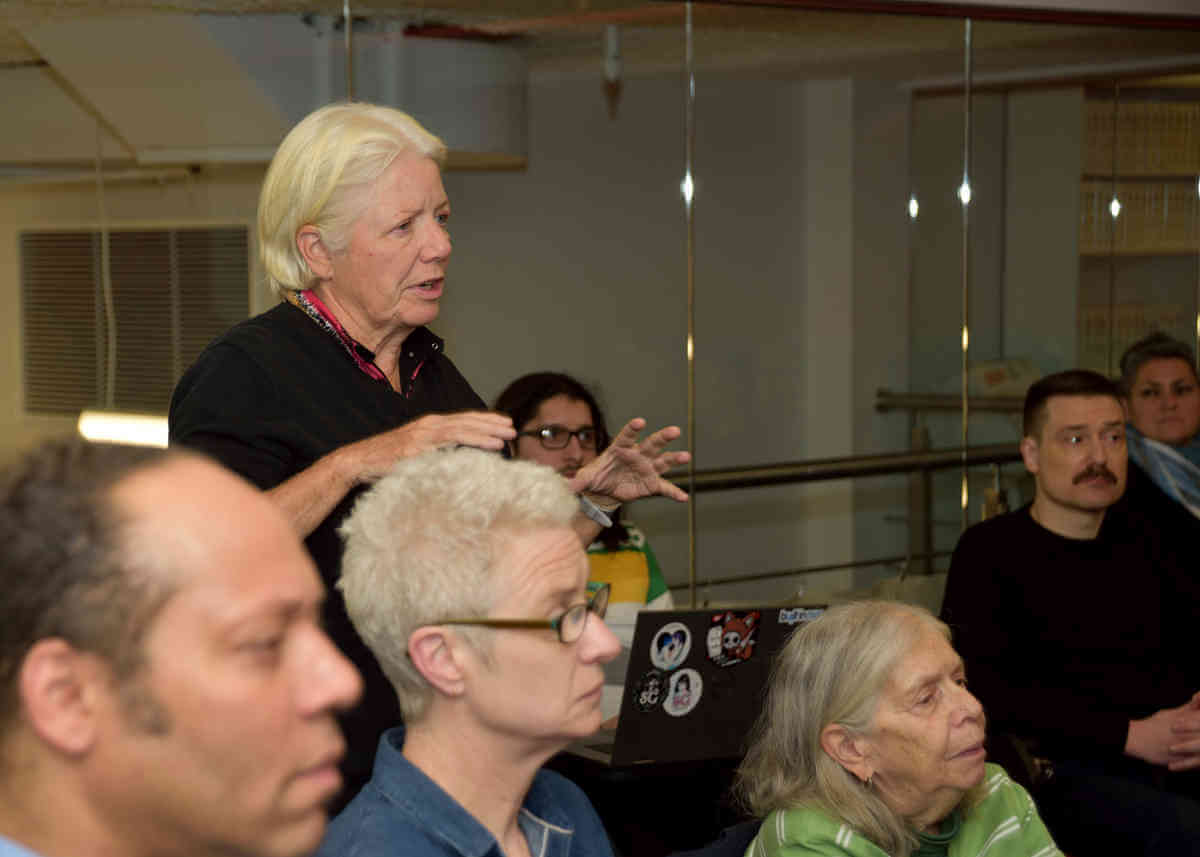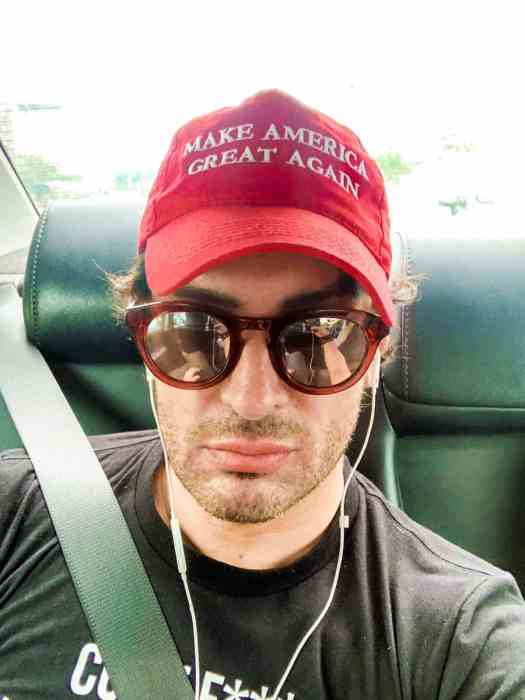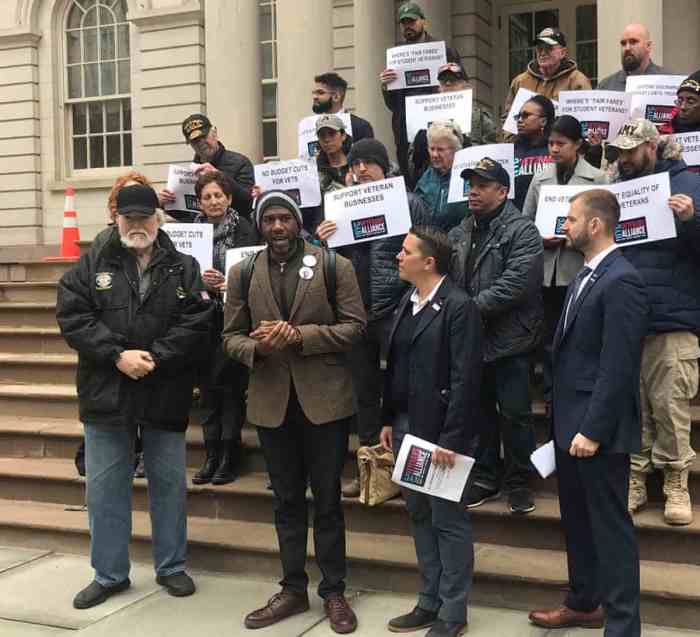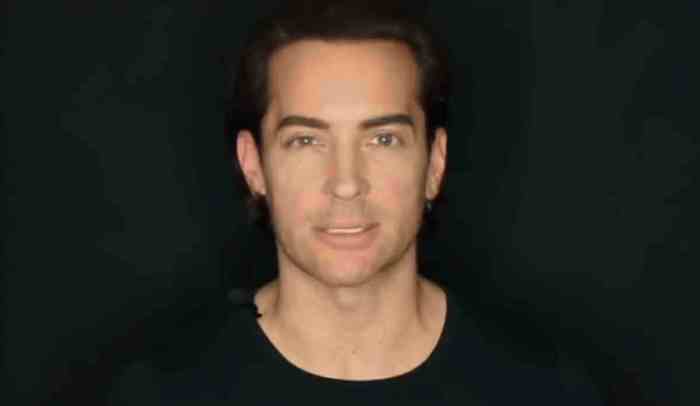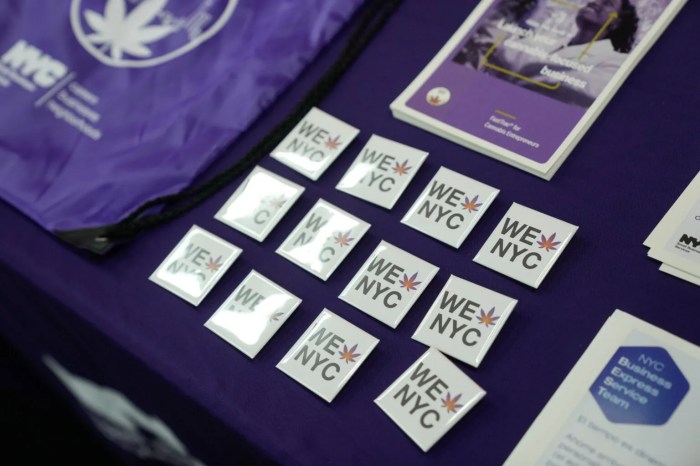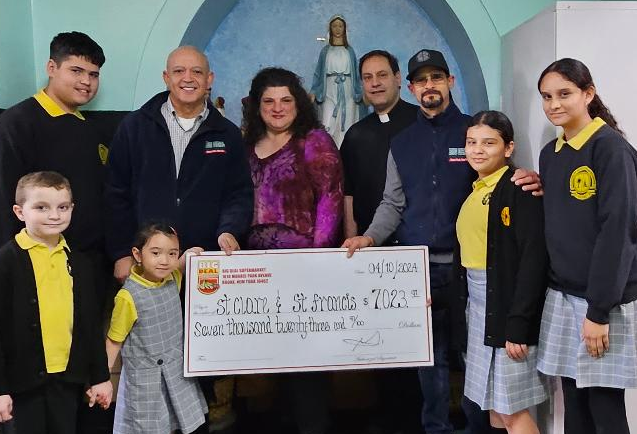The coalition that has been pressing Heritage of Pride (HOP) to fundamentally alter the character of New York City’s annual Pride Parade has shifted goals and is seeking city permits to stage its own march on the last Sunday in June next year and to produce a rally in Central Park following that march.
“All of this is our dream scenario,” said Ann Northrop, a longtime LGBTQ activist, during a November 14 meeting of the Reclaim Pride Coalition (RPC) that was held at The People’s Forum, a meeting place on West 37th Street in Manhattan.
The RPC membership wants a march that will begin in the West Village on June 30, 2019 and head up to Central Park on Sixth Avenue where the rally will be staged on the Great Lawn. The RPC members are at the start of their organizing for next year’s events.
Next year will be the 50th anniversary of the Stonewall riots that mark the start of the modern LGBTQ rights movement. The city and HOP are predicting large crowds for next year’s Pride Parade and related events. HOP will be staging its own Pride Parade and closing ceremony on that same Sunday next year. HOP has not announced next year’s route, but it has said it wants to hold the closing ceremony in Times Square.
The question this raises is whether the city will allow the RPC members to produce their own events in the way and at the time they are seeking.
The RPC members began their work prior to this year’s Pride Parade with a series of demands, chief among them a reduced corporate presence in the march, a resistance contingent in the march, a ban on members of the Gay Officers Action League (GOAL) wearing their NYPD uniforms or carrying weapons in the parade, and a dialing back of the event’s policing. While the Coalition secured the resistance contingent — having won that battle with HOP in 2017 in the first parade following Donald Trump’s election — they were generally unsuccessful with their other demands.
While community groups continue to make up most of the contingents in the parade, complaints about the corporate presence are longstanding, but have become louder in recent years with corporate sponsors being allowed to buy spots toward the front of the parade and deploy large floats and hundreds of marchers.
While some RPC members had supported the Coalition having its own march this past June, it was only after that parade that members were unanimous in deciding they had to field a “Human Rights and Social Justice March” in 2019 to express their own message, which they say is not only distinct from HOP’s message but also much closer in spirit to the 1969 Stonewall riots and to the early marches that commemorated that event.
The first march came in 1970 and went from the West Village to Central Park. In later years, the marches reversed direction and eventually the march shifted to Fifth Avenue, which was seen a victory for the LGBTQ community in achieving an equal status with other communities staging parades in the city.
Matthew McMorrow, who is the de Blasio administration’s liaison to the LGBTQ community, attended the November 14 meeting and spent more than an hour fielding questions and comments from the roughly 70 people who attended.

“I know you submitted your applications,” McMorrow said. “We are reviewing those… We are going to accommodate all voices that are participating in Stonewall 50.”
McMorrow would not be pinned down on the meaning of “accommodate.” That could mean that the RPC does not get exactly what it wants, with McMorrow explaining that after the city reviews the applications it may come back with alternative proposals.
The city appears to be more accommodating toward HOP. McMorrow repeatedly noted that HOP is producing more than two dozen separate events in 2019.
“In terms of HOP, WorldPride, we have to deal with them,” McMorrow said. “HOP is putting on 26 events.”
WorldPride is a license owned by InterPride, an umbrella organization of Pride groups around the globe. There have been five WorldPride events, and the 2019 WorldPride is the first held in the US. HOP won the bidding for the 2019 license in 2015 before Trump won the White House and implemented visa and travel policies that could prevent some LGBTQ people from traveling to the US and make others decide they do not wish to come. The license requires host organizations to produce certain events, such as opening and closing ceremonies.
There were two parades in 1994, the 25th anniversary of the riots. Stonewall 25, an organization separate from HOP, produced that year’s major events and had the march go up First Avenue past the United Nations building to reflect an international theme. The march ended in Central Park.
A group called Gay and Lesbian Americans (GLA) sued the city for a permit to hold a separate march the same day starting near the Stonewall Inn, the site of the 1969 riots, and traveling on Fifth Avenue to Central Park. Like the Coalition, GLA said the Stonewall 25 plan did not reflect its values and the city could not compel its members to join that march.
While the federal judge who heard that case ultimately refused to require the city to issue a permit for the second march, the city allowed the roughly 5,000 marchers to proceed without a permit. William Bratton, then the police commissioner, stood on the steps in front of St. Patrick’s Cathedral behind a phalanx of police officers as the march went by on Fifth Avenue. Bratton was joined by John Miller, then the department’s chief spokesperson and now the NYPD’s deputy commissioner for intelligence and counterterrorism.
McMorrow said that circumstances have changed since 1994, the crowds are larger, and safety is a more paramount concern.
“In 1994, there were 750,000 people,” he said. “Last year, there were 2.5 million… Since 1994, we’ve had the Boston Marathon bombing, mass shootings, people driving into crowds.”


